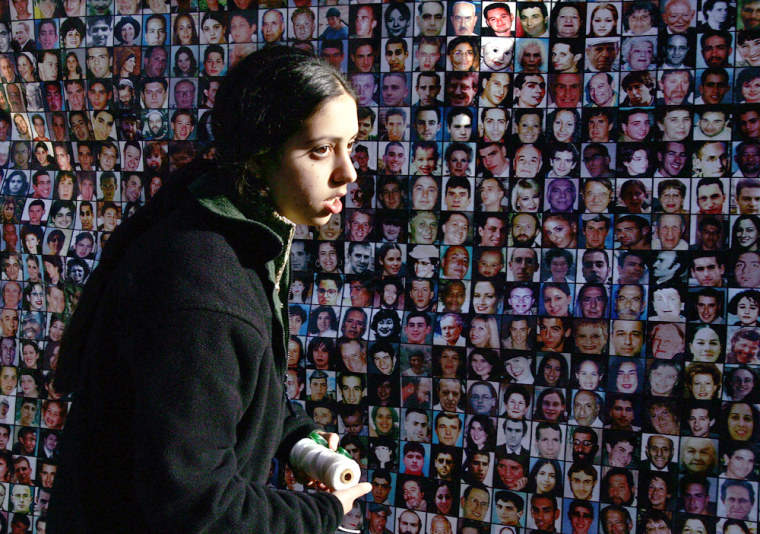Israeli government said it will not negotiate with a Palestinian government that includes Hamas members.
Palestinian President Mahmoud Abbas stressed on Thursday that he aimed to continue efforts to reach a peace deal with Israel following the parliamentary election victory of Hamas.
Abbas said that he would immediately start consultations on forming a new government, which will be shaped by Hamas, a group that led a suicide bombing campaign and is formally committed to destroying the Jewish state.
“The new government will work according to Israeli-Palestinian agreements,” Abbas told a news conference in his first reaction to the Hamas victory.
Israeli Avi Zana listened with horror on Thursday to news that the Hamas militant group that killed his son had won Palestinian elections.
On the streets of the Jewish state, there was grave concern at the victory of the Hamas movement that carried out nearly 60 suicide bombings during a Palestinian uprising and is formally dedicated to destroying Israel.
“The Palestinians have shown their true face by electing Hamas,” said Zana, 46. “The group does not want control of the Palestinian Authority, it wants control of all Israel.”
Among those expected to win seats in the new Palestinian parliament was Mariam Farhat, also known as Umm Nidal, who in a video tape message urged her sons to carry out attacks --including the one on a Jewish settlement in which Zana’s 18-year-old-son was killed.
Hamas has largely followed a truce for the past year and played down its charter commitment to get rid of Israel during the campaign.
'Elected to bring about change'
Its victory was seen by Palestinians mostly as a vote for change from the dominant Fatah movement, long accused of corruption and misrule.
“Hamas was not elected to carry out attacks against Israel. It was elected to bring about change,” said Israeli analyst Yochanan Tsorev. “We have to see how things develop.”
But such suggestions have done little to ease the fears of many Israelis.
“It is hard not to be even more pessimistic now about peacemaking prospects here,” said Shimi Breutman, 22, a travel guide.
“We could see this whole place engulfed in even further chaos. Israel has to tread very carefully.”
Peace talks collapsed in 2000 before the uprising started.
Israel, joined by the United States, refuses to negotiate with Hamas until it disarms and changes its charter.
Fear for the future
Following Israel’s pullout from the Gaza Strip last year, Israeli leaders have mooted a possible further withdrawal from parts of the West Bank to set a de facto border unilaterally if peace talks remain stalled.
Israeli officials were tight-lipped on Thursday as interim Prime Minister Ehud Olmert held hurried consultations.
Olmert, who assumed Ariel Sharon’s powers after a Jan. 4 stroke, is expected to win a March 28 election but lacks the credentials of ex-general Sharon as someone willing to use harsh measures against the uprising. Sharon had ordered the killing of top Hamas leaders and militants after attacks.
“If Sharon had been able to continue, things would have been better. He knew how to handle Hamas," said Yossi Amzalik, 52, a shop owner.
